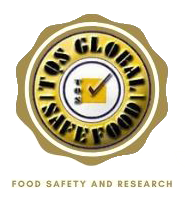
Food Safety for Hotels, Restaurants, Catering and Corporate Kitchens
TQS Global’s Food Safety Services are designed with the purpose of implementation of food
safety at small, medium, and large-scale eating establishments, including corporate kitchens
and cafeteria.
It is a due diligence program where comprehensive implementation of food safety is
accomplished with aid of manifold tools such as auditing, trainings, interactive session based on
gap analysis and sampling and testing of products.
This is a facilitation program towards registration of food establishments including hotels,
restaurants, food chains, distributors, whole seller, manufacturers, and food vending units
under FSSA towards certification.
The objective is to enable the units for getting certifications in terms of HACCP, 22000 through
creation of awareness and need among Food Business Operator for getting assurance that food
products are safe when reaching to the plate of consumer.
Clients have 24X7 assistance on telephone to technical team for any food safety related issues
and emergency.
TAI makes the food Safety program even more robust when coupled with regulatory as well as
internationally accredited training programs. These broadly include food handling controls,
personal hygiene, requirements for food handlers and food business, building & facilities,
equipment & utensils, production & process controls, storage & display, and pest controls.
It is a due diligence program where comprehensive implementation of food safety is
accomplished with aid of manifold tools such as auditing, trainings, interactive session based on
gap analysis and sampling and testing of products.
This is a 360-degree multidimensional integrated program which covers every aspect of hotel
and restaurant operations.
The program also serves as a very effective functional tool for corporate kitchens and catering
units.

Food Safety for Schools
Serving safe food is a critical responsibility for school foodservice and a key aspect of a healthy
school environment. Keeping foods safe is also a vital part of healthy eating and a mandatory
requirement under FSSR, 2011.
TQS Global has been successfully implementing food safety programs based on SFD™ pattern to
help ensure the safety of the school meals served to children across the country.
The purpose of a school food safety program is to ensure the delivery of safe foods to children
in the school by controlling hazards that may occur or be introduced into foods anywhere along
the flow of the food from receiving to service. We emphasize on strictly regulating nutrition
standards of all food and beverages sold or served at school, including school meals, vended
items and items given to students during any event or celebration based on the set nutritional
and portion size limits for children on all foods and beverages. Our food safety program helps
effectively control food safety hazards that might arise during all aspects of food service
(receiving, storing, preparing, cooking, cooling, reheating, holding, and serving).
It controls both specific and nonspecific hazards and consist of a written FSMS plan for applying
the basic food safety principles. The FSMS plans are tailored specifically for each school food
operations and training are provided to the caterers. Teachers are also included in the training
procedure to ensure maximum percolation of food safety guidelines for better facilitation of
food safety for school children.

Food Safety for Hospitals
TQS Global introduced food safety programs for hospitals that provide potentially hazardous
food to vulnerable people. The requirement for mandatory food safety programs is part of the
FSSR, 2006.
Hospitals have been identified as a high food safety risk because they serve potentially
hazardous foods to vulnerable people (children under four, elderly people aged 70 or over,
pregnant women; and immuno-compromised people).
Vulnerable people are considered more susceptible to microbiological infection than the
average healthy adult, and the symptoms and consequences of food-borne illness can be more
severe. Generally, vulnerable people have weaker immune systems and it is easier for harmful
microbes to get through their digestive system and invade their bodies.
Listeria infection is uncommon in the average healthy person but can be particularly dangerous
for vulnerable people taking unsafe Listeria contaminated food in the hospitals. Hospital
acquired Listeria is of particular concern because it is associated with high mortality rates.
TQS Global Food safety program for hospitals is also important as some most commonly served
foods in hospitals have higher likelihood of bacterial contamination and are considered high risk
foods. Meals including dairy products, some fruit and raw salad vegetables should be provided
to hospital patients if the hospital has a food safety program that adequately manages such
risk.

Food Safety for Street Food Vendors
TQS Global Food safety program for Street Food vendors focuses on "street-vended foods" or
its equivalent "street foods" which are defined as foods and beverages prepared and/or sold by vendors in streets and other public places for immediate consumption or consumption at a
later time without further processing or preparation. This definition includes fresh fruits and
vegetables which are sold outside authorized market areas for immediate consumption.
Due to vast culture and variations in socioeconomic state of affairs in India, street vended food
sector has experienced significant growth during the past few decades. With escalating
urbanization and population growth, street-vended foods also expand accordingly, which are
largely but not exclusively an urban phenomenon.
While street-vended foods are appreciated for their unique flavours as well as their
convenience, they are also often essential for maintaining the nutritional status of the
population.
Street food vending assures food security for low-income urban populations and provides a
livelihood for a large number of workers. Street food vending also offers business opportunities
for developing entrepreneurs.
In contrast to these potential benefits, it is also recognized that street-food vendors are often
poor and uneducated and lack appreciation for safe food handling. Consequently, street foods
are perceived to be a major public health risk.
We at TQS Global, emphasize on ensuring food safety awareness among street food vendors
through mass training program making them realize that food safety is mandatory and is
attainable irrespective of the size and nature of business.

Vendor Quality Management
TQS Global has a proactive and collaborative approach to ensure that service or material suppliers provide the highest quality of products and services while also conforming top re- established requirements. We begin with product design and supplier selection process. It continues through the entire life cycle of a product and for the duration of the relationship with that particular supplier.

